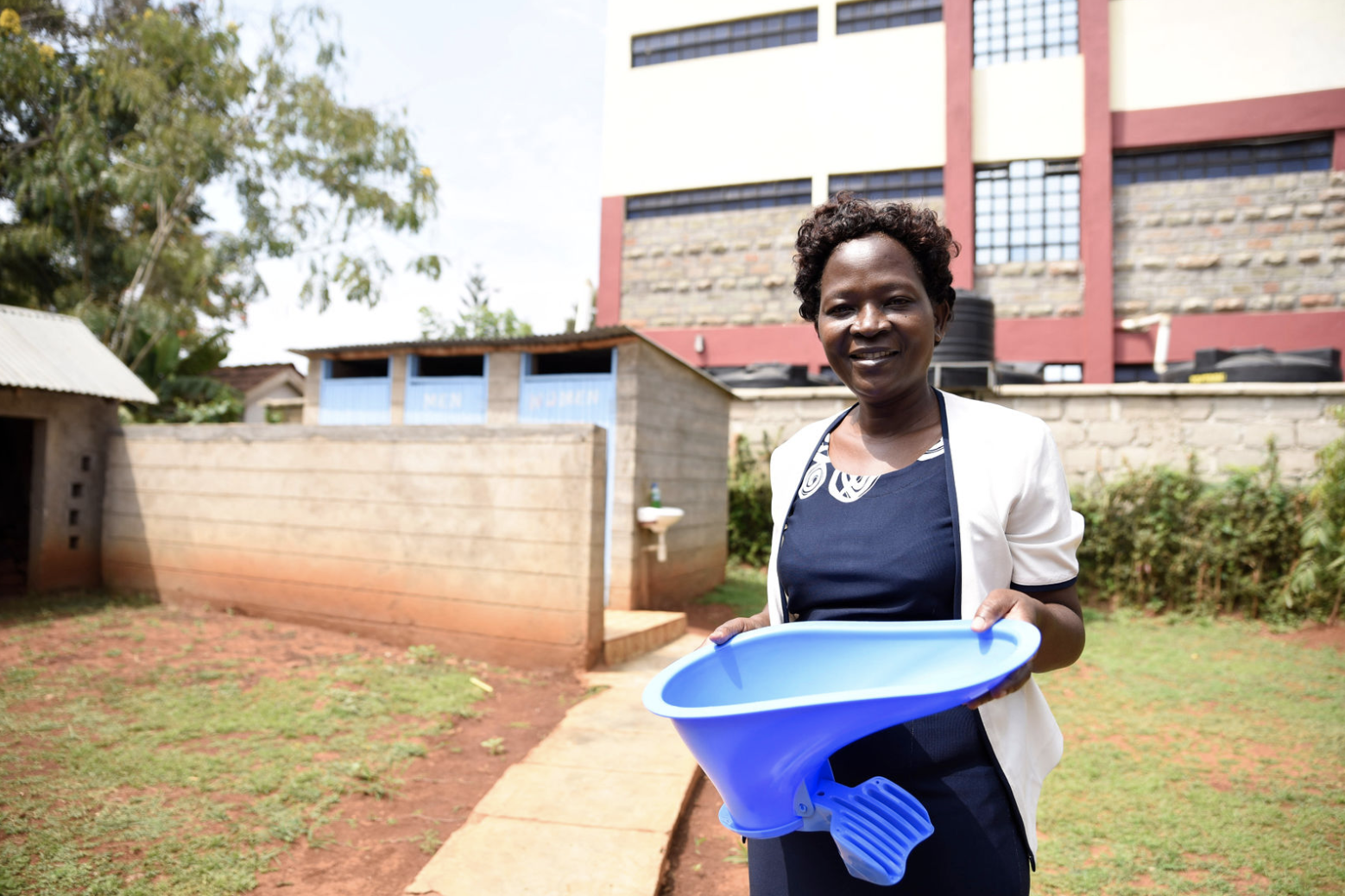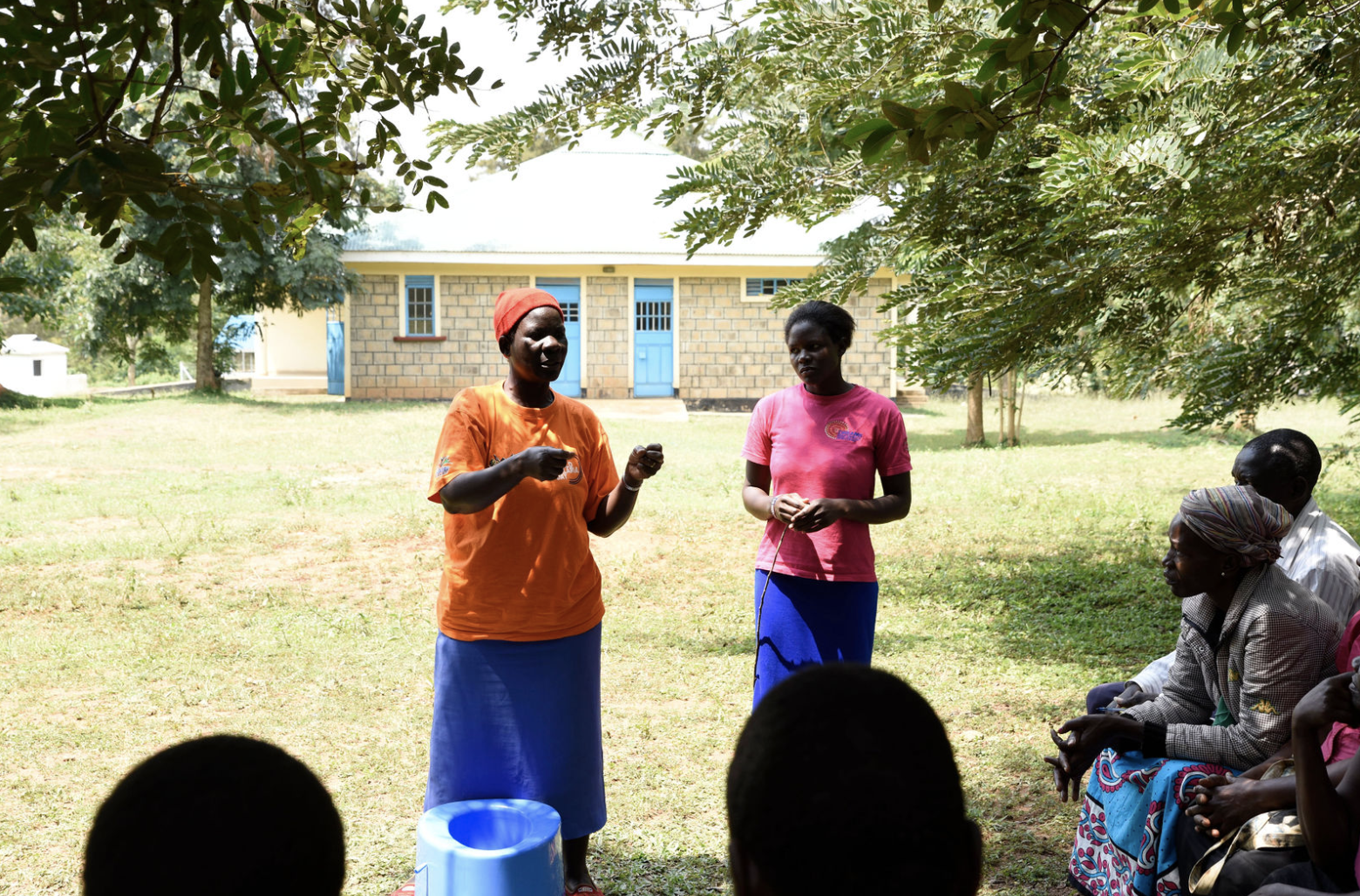We’re all familiar with this marvelous invention, but did you know these important facts, which show just how much a toilet has the capacity to change our lives?
1. Fewer people have access to toilet than to cell phones.

A clean toilet is something most of us have come to expect in our lives, but in many countries it’s a complete luxury.
Although 95% of the world’s population live with cellular networks, only 75% live with safe and sanitary toilets*. This means 1 out of 4 (or about 2 billion) people in the world have no access to usable, clean toilets. A whopping 700 million have no choice but to defecate outside, in a bush or in rivers, which contaminates water, spreading disease. Many are also exposed to the danger of getting attacked by animals, harassed or assaulted by others as they look for a place to defecate in the open.
*Information according to a 2015 International Telecommunication Union report
2. Lack of toilets limits opportunities for women

In developing countries, toilets are not installed at every school; if they are, they’re often unisex. For teenage girls, it can mean a loss of dignity and be embarrassing to share toilets with boys when they have their period. Some girls stay at home because they feel uncomfortable disposing used pads and tampons at school. This could lead to children falling behind on education and thus not being able to pursue careers later in life. A lack of toilets can be a key factor in poverty chains.
3. One child dies every two minutes due to shortage of sanitary toilets.

Every day, approximately 800 children under the age of 5 lose their life due to diarrheal diseases caused by unhealthy conditions such as lack of sanitary toilets. When you do the math, that means a child dies roughly every two minutes.
4. Lack of toilets causes HUGE economic losses.

According to research by LIXIL with Oxford Economics and WaterAid in 2015, unsanitary environments have caused deaths, a decrease in productivity, an increase in illness and medical costs, and many other negative effects. It's estimated that in the year of the report alone, not having sanitary toilets has caused a loss of about $200 billion worldwide.
As of 2017, more than 200 million people living in low income areas of Africa (specifically in Sub-Saharan Africa) do NOT have access to sanitary toilets. As the population increases in Africa, the economic impact of poor sanitation will increase unless sanitary practices become more widespread.
5. A Japanese company is tackling the issue with a simple, effective innovation and a business plan that involves locals.

LIXIL, Japanese maker of pioneering water and housing products, has been working to improve global hygiene conditions. One of its solutions for developing countries is a specially designed toilet system called SATO.
SATO is an off-grid solution with the benefits of a flush toilet that requires little water to flush.It helps minimize odors and keeps disease-carrying insects away, and most importantly, SATO is affordable.
As of August 2018, SATO has supplied over 25 countries. The business is now break-even in Bangladesh, and LIXIL is expanding to other countries in Africa.
In countries such as Kenya, Ethiopia and Tanzania, LIXIL has partnered with local governments and NPOs to run programs for improved sanitation. As of March 2019, SATO has provided shipments to more than 15 African countries, reaching over 250,000 people.

LIXIL's mission is to make its business localized. The entire process (including production, distribution, installation and maintenance) is done by locals — empowering them through job opportunities.
Who knew that adding an extra sanitized toilet to the world could change so much?

This post was translated from Japanese.
